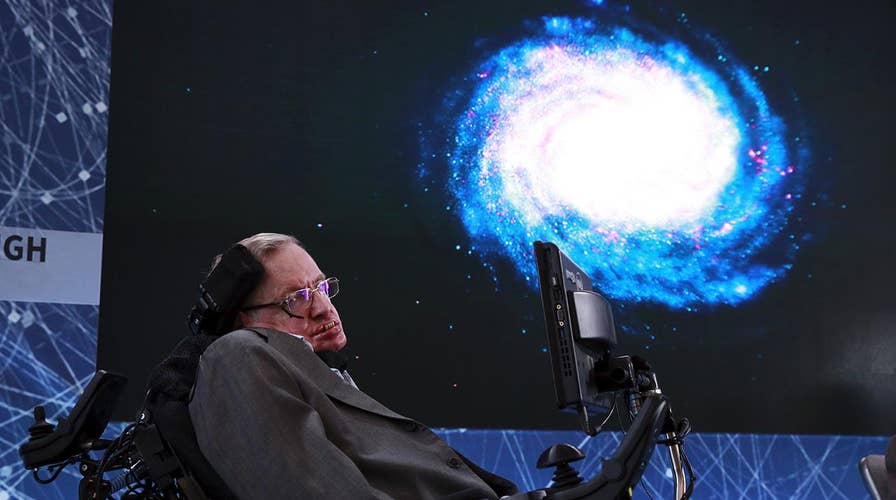What happened before the Big Bang?
Famous physicist Stephen Hawking describes the universe before the Big Bang.
It's the biggest question in the universe. What happened before the Big Bang? Now world-famous physicist Stephen Hawking says he has an answer.
“The boundary condition of the universe ... is that it has no boundary,” Hawking tells the National Geographic’s Star Talk show this weekend.
In other words, there is no time before time began as time was always there.
It was just different.
He tells physicist Neil deGrasse Tyson that amid the almost infinitely small quantum foam of the singularity before the Big Bang, time existed in a ‘bent’” state.
It was distorted along another dimension — always getting fractionally closer to, but never becoming, nothing.
So there never was a Big Bang that created something from nothing.
It’s just looks that way from our point of perspective.
“All the evidence seems to indicate, that the universe has not existed forever, but that it had a beginning, about 15 billion years ago,” Hawking says in one of his lectures.
“There must have been a beginning. Otherwise, the universe would be in a state of complete disorder by now, and everything would be at the same temperature. In an infinite and everlasting universe, every line of sight would end on the surface of a star. This would mean that the night sky would have been as bright as the surface of the Sun. The only way of avoiding this problem would be if, for some reason, the stars did not shine before a certain time.”
But things were different at the Big Bang.
“The density would have been infinite,” Hawking says.
“It would have been what is called, a singularity. At a singularity, all the laws of physics would have broken down. This means that the state of the universe, after the Big Bang, will not depend on anything that may have happened before, because the deterministic laws that govern the universe will break down in the Big Bang.”
This has long posed a serious problem for physics, he says.
“Since events before the Big Bang have no observational consequences, one may as well cut them out of the theory, and say that time began at the Big Bang. Events before the Big Bang, are simply not defined, because there’s no way one could measure what happened at them.”
But there are ways to figure out what came before, he says.
“Quantum theory introduces a new idea, that of imaginary time. Imaginary time may sound like science fiction, and it has been brought into Doctor Who. But nevertheless, it is a genuine scientific concept. One can picture it in the following way. One can think of ordinary, real, time as a horizontal line. On the left, one has the past, and on the right, the future. But there’s another kind of time in the vertical direction. This is called imaginary time, because it is not the kind of time we normally experience. But in a sense, it is just as real as what we call real time.”
This has enormous implications when it comes to the Big Bang.
“James Hartle of the University of California Santa Barbara, and I have proposed that space and imaginary time together, are indeed finite in extent, but without boundary. They would be like the surface of the Earth, but with two more dimensions. The surface of the Earth is finite in extent, but it doesn’t have any boundaries or edges. I have been around the world, and I didn’t fall off. “
There’s no raw physics that supports his idea. Yet.
But Hawking’s insight has proven right before.
What we do know is that when it comes to the Big Bang — and black holes — our understanding of physics breaks down.
The only certainty about the infinitesimally small quantum building blocks of our universe is that they are uncertain. Simply observing them can cause them to change. They can be in two places — or two states — at once.
They seem to be a physical embodiment of probability and potential: elements of reality that haven’t quite yet decided what they’re going to do.
While it dictates our lives, we still don’t know what time is. Or exactly where it comes from.
We know how it works. We know its effects.
It’s like gravity.
It doesn’t entirely seem to fit in the ‘big’ world of the physics we experience, nor the ‘weird’ world of the subatomic.
But, like the strange behavior of quantum physics, perhaps time has a lot more left to tell.
This story originally appeared in news.com.au.









































